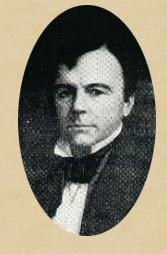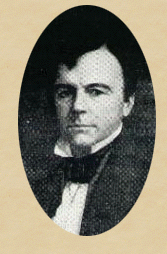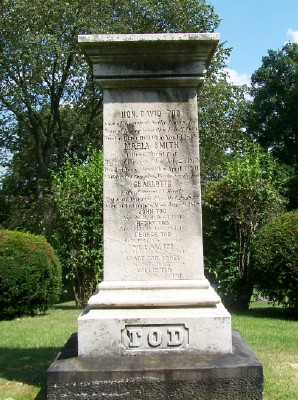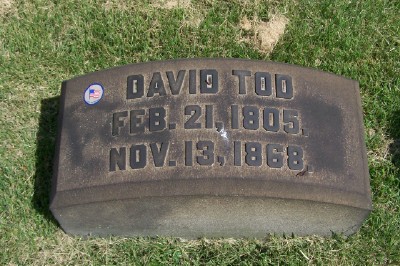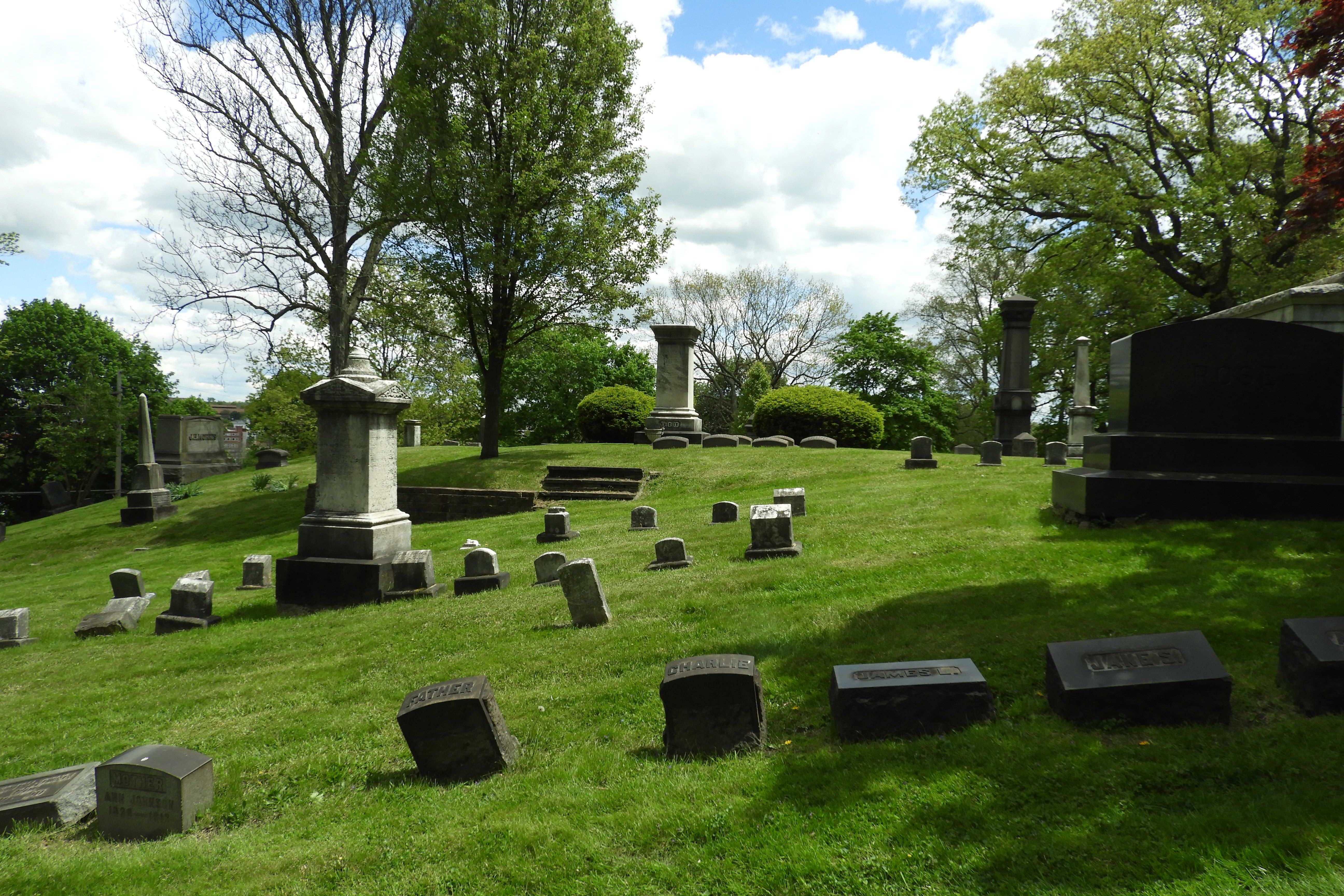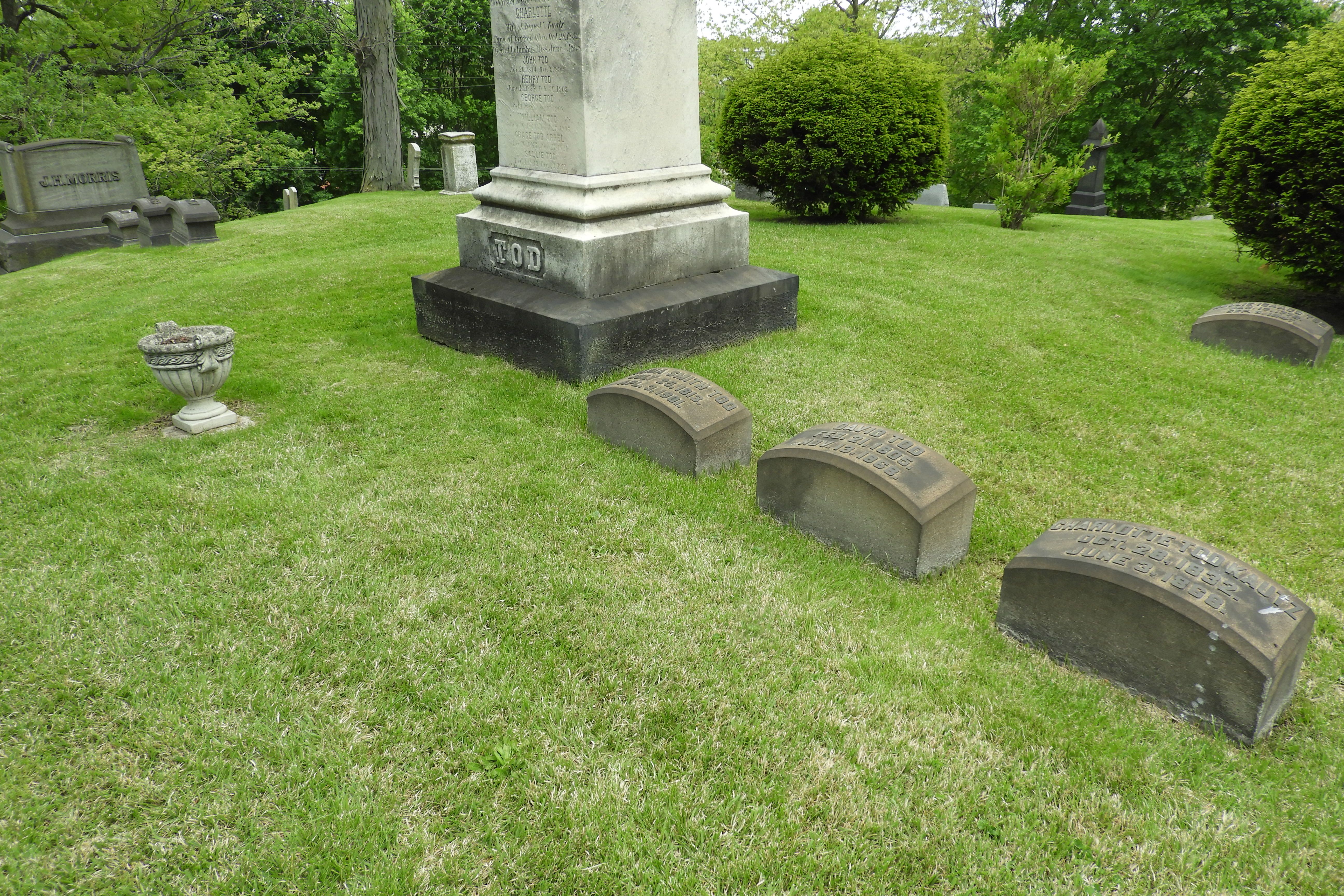25th Ohio Governor. Born near Youngstown, Ohio, he was the son of noted judge George Tod. He attended Burton Academy in Ohio and passed the bar in 1827. Entering local politics, he, took a seat in the Ohio state senate as a Democrat in 1838. He was appointed Minister to Brazil by President James K. Polk in 1847. Ten years later he returned to Youngstown to oversee his growing coal and iron business. In April 1860 he attended the Democratic national convention in Charleston, South Carolina. Two years later, he was nominated Ohio's governor on the Union ticket and handily defeated Democrat Hugh J. Jewett. Taking office in January 1862, he found growing antiwar sentiment his biggest problem. To supply Ohio's quota for the Federal army, he induced militia regiments to enter Regular service by paying high bounties. To finance the cost, stiff commutation fees were levied against draft evaders and resisters. During the Ohio gubernatorial race of 1864, the Democrats nominated US Congressman Clement L. Vallandigham, a vocal anti-Lincoln activist who drew support in war weary Ohio. He threatened to arrest disloyal citizens. Unfortunately for him, an overly zealous Major General Ambrose E. Burnside, head of the Military Department of Ohio, arrested Vallandigham, causing a great uproar among Northern Democrats; and nearly forcing him out of office. At the Republican state convention in 1864, he was bitterly disappointed over not being renominated. The Vallandigham affair, arbitrary arrests, and high administrative expenses had diminished his popularity among the electorate. He had also run afoul of railroad interests intent on linking Ohio and the South. As a private citizen, he continued to support Lincoln and the war effort. When Secretary of the Treasury Salmon P. Chase resigned on June 30, 1864, Lincoln offered him the post. He refused, citing poor health and pressing business interests. Elected a Republican presidential elector in 1868, he died later that year.
25th Ohio Governor. Born near Youngstown, Ohio, he was the son of noted judge George Tod. He attended Burton Academy in Ohio and passed the bar in 1827. Entering local politics, he, took a seat in the Ohio state senate as a Democrat in 1838. He was appointed Minister to Brazil by President James K. Polk in 1847. Ten years later he returned to Youngstown to oversee his growing coal and iron business. In April 1860 he attended the Democratic national convention in Charleston, South Carolina. Two years later, he was nominated Ohio's governor on the Union ticket and handily defeated Democrat Hugh J. Jewett. Taking office in January 1862, he found growing antiwar sentiment his biggest problem. To supply Ohio's quota for the Federal army, he induced militia regiments to enter Regular service by paying high bounties. To finance the cost, stiff commutation fees were levied against draft evaders and resisters. During the Ohio gubernatorial race of 1864, the Democrats nominated US Congressman Clement L. Vallandigham, a vocal anti-Lincoln activist who drew support in war weary Ohio. He threatened to arrest disloyal citizens. Unfortunately for him, an overly zealous Major General Ambrose E. Burnside, head of the Military Department of Ohio, arrested Vallandigham, causing a great uproar among Northern Democrats; and nearly forcing him out of office. At the Republican state convention in 1864, he was bitterly disappointed over not being renominated. The Vallandigham affair, arbitrary arrests, and high administrative expenses had diminished his popularity among the electorate. He had also run afoul of railroad interests intent on linking Ohio and the South. As a private citizen, he continued to support Lincoln and the war effort. When Secretary of the Treasury Salmon P. Chase resigned on June 30, 1864, Lincoln offered him the post. He refused, citing poor health and pressing business interests. Elected a Republican presidential elector in 1868, he died later that year.
Bio by: Ugaalltheway
Family Members
Advertisement
See more Tod memorials in:
Explore more
Sponsored by Ancestry
Advertisement
